For the past 60 years, United Theological Seminary of the Twin Cities has consistently engaged in public theology.
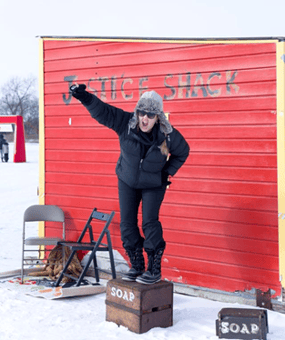 It has tethered its theology to current events and ongoing crises in the world, and engaged in protests, marches, plays and other artistic expressions, publications, politics, podcasts, and more. Public theology is embedded in United’s foundational makeup, and will continue to shape its students and leaders for generations to come. The Justice Shack, created by Hortense MacLeod (’15) and Colleen Cook (’15), is a visceral example.
It has tethered its theology to current events and ongoing crises in the world, and engaged in protests, marches, plays and other artistic expressions, publications, politics, podcasts, and more. Public theology is embedded in United’s foundational makeup, and will continue to shape its students and leaders for generations to come. The Justice Shack, created by Hortense MacLeod (’15) and Colleen Cook (’15), is a visceral example.
And, as President Molly Marshall states, “More than ever before, the world needs a seminary like United because we focus on today’s most important questions and urgent needs.”
United’s History of Public Theology
When introducing his public theology course at United, Professor Demian Wheeler offers a variety of ways to define public theology. No matter what expression it takes, public theology passes the litmus test when it is: 1) public, 2) incarnational, 3) interdisciplinary, 4) dialogical, 5) global, and 6) justice seeking.
In sum, Wheeler asserts, “Public theology is the tenacious refusal of parochialism in theology; public theologians refuse to theologize in isolation from the wider publics in which they are situated.” Put another way, public theology is “worldly theology, interpreting important social questions from a distinctly theological point of view and attending to issues that are pertinent to political life, economic life, cultural life, and other sectors of public life… Most importantly, public theology is theology that serves and supports the common good.”
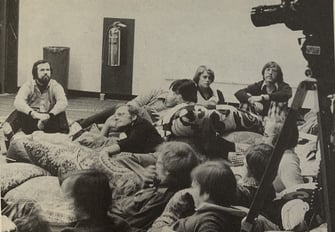 Throughout its history, United—as represented by its faculty, students, and alums—has consistently engaged in public theology. Professors James Nelson and Wilson Yates were early public crusaders.
Throughout its history, United—as represented by its faculty, students, and alums—has consistently engaged in public theology. Professors James Nelson and Wilson Yates were early public crusaders.
In 1966, Nelson took students to Mississippi to support voter registration in underprivileged areas, and in 1972 he was among the first religious professionals to engage in the University of Minnesota’s Human Sexuality program. His ground-breaking 1978 book, Embodiment, boldly explored sexuality within the context of theology and cogently argued to end societal and religious discrimination against those in the LGBT community. Above is a photo from Nelson’s Human Sexuality course.
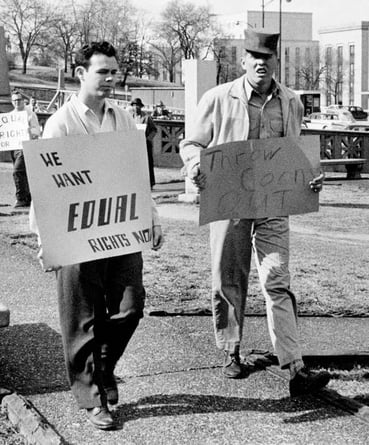 Yates, for his part, was the first white student jailed in the Nashville sit-ins in 1960 (he is pictured on the left here)1. By 1971, he had introduced a White Racism workshop into the Christianity and Culture course. In late 1974, Yates, then Professor of Church and Community, secured funding from the Archie D. and Bertha H. Walker Foundation to develop resources for a Church and Race program.
Yates, for his part, was the first white student jailed in the Nashville sit-ins in 1960 (he is pictured on the left here)1. By 1971, he had introduced a White Racism workshop into the Christianity and Culture course. In late 1974, Yates, then Professor of Church and Community, secured funding from the Archie D. and Bertha H. Walker Foundation to develop resources for a Church and Race program.
Early on, students at United also practiced public theology. In 1967, 20 students demonstrated for civil rights and housing legislation in Milwaukee. A year later students and faculty demonstrated at the Minnesota Capitol on behalf of a fellow student who refused induction into the armed forces. Protests against the Vietnam War and attendance at memorial services were also common.
The first few women enrolled at United staged their own protest against discrimination. Though the seminary instituted a policy of non-discrimination in February 1971, faculty members were (according to Professor Emeritus of Old Testament, Rev. Dr. Arthur Merrill2) “both astounded and confounded when [just months later]…three women…confronted them with three demands which specifically affected women students.”
In the intervening years, among other things, United has witnessed and advocated for the common good of ordaining all fit ministers irrespective of sexual orientation or gender identity or culture, safeguarding the future of undocumented minors, granting all loving couples the right to legally marry, working against violence and injustice, and preserving the earth for generations to come. In all cases, social justice work has found expression through art.
Public Theology in Action
Minister/Activist/Legislator
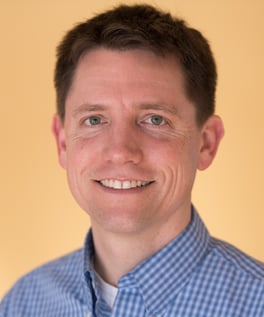 Rev. Todd Lippert, a 2003 United graduate and the school’s 2020 Distinguished Alum, has consistently worked toward the common good as a United Church of Christ (UCC) pastor, an active member of ISAIAH (a statewide, nonpartisan coalition of faith communities and other community organizations fighting for racial and economic justice) and, from 2018–2022, a Minnesota state legislator.
Rev. Todd Lippert, a 2003 United graduate and the school’s 2020 Distinguished Alum, has consistently worked toward the common good as a United Church of Christ (UCC) pastor, an active member of ISAIAH (a statewide, nonpartisan coalition of faith communities and other community organizations fighting for racial and economic justice) and, from 2018–2022, a Minnesota state legislator.
With ISAIAH, Lippert focuses on helping immigrants by building coalitions and advancing policy proposals. Speaking about his foray into politics, Lippert says, “I got involved in politics because I believe in the Common Good. Good for a few isn’t good enough.”
These days, he is also a Community Minister at Mayflower Church, a UCC-affiliated church in Minneapolis. The role, Lippert explains, “involves taking the ministry of Mayflower Church into the world in specific ways.…[T]o address our biggest challenges—halting climate change, realizing racial and gender equality, and dismantling poverty—we must be able to see God’s presence in our neighbors, no matter the color of their skin, their gender identity, or where they live. As we do, we can build more powerful coalitions that will allow us to take on corporate greed more effectively.”
The United alum and trustee who nominated Todd for the 2020 Distinguished Alum award is Rev. Dr. Karen Smith Sellers (’76, ’13). In sharing why she nominated Todd, Sellers states, “Todd models brilliantly the ways in which a graduate theological education at United Theological Seminary prepares one for effective leadership in diverse sectors.”
Teacher/Activist/Online Church Founder
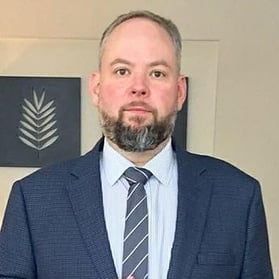 Rev. Dr. Bryan Demeritte, a 2005 alum and adjunct professor at United, recognized a deep need for access to a certain kind of spiritual home and sought to minister to an international audience. The idea for Wild Goose International, as it came to be known, took flight in 2018. As he explains it, Wild Goose was launched at the “intersection of three main public needs with respect to the Progressive Christian movement.”
Rev. Dr. Bryan Demeritte, a 2005 alum and adjunct professor at United, recognized a deep need for access to a certain kind of spiritual home and sought to minister to an international audience. The idea for Wild Goose International, as it came to be known, took flight in 2018. As he explains it, Wild Goose was launched at the “intersection of three main public needs with respect to the Progressive Christian movement.”
First, there is a paucity of progressive Christian communities in many countries “and even on entire continents.” As a public figure, Demeritte received numerous requests to create an international “progressive Christian worship and a pastoral/community of faith presence on social media.” Second, a significant number of places in North America are bereft of progressive spiritual church homes, and some people are unable or disinclined to venture into public for myriad reasons. Third, with the advent of online-only ministries over the last decade or more, many would-be parishioners have grown comfortable with that format.
Wild Goose—so named, notes Demeritte, “because of the indigenous traditions around the world that see the image of the goose as one of the Holy Spirit, instead of the traditional dove”—continued to minister to an international LGBTQIA+ faith community until the second year of the pandemic when churches had become more adept at their new model of online programming—one that coincidentally allowed more people to access services. Of his former role with Wild Goose, Bryan asserts, “United’s unique focus on pastoral education, assisted in deep self-reflection, so that those formative processes could reveal summative growth as an ordained leader in congregational ministry.”
Minister/Organizer/Activist
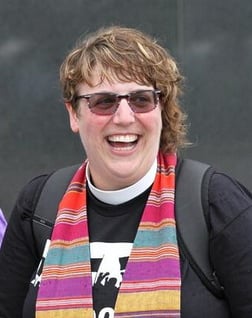 In 2011, when Rev. Terri Burnor (’15) began her journey at United, she explained that her life to that point was “pretty ordinary, in the most mainstream definition of ordinary.” Once she witnessed faculty and alums “living out their values in profound ways,” Burnor charted her own path of public theology through acting in solidarity with frontline communities.
In 2011, when Rev. Terri Burnor (’15) began her journey at United, she explained that her life to that point was “pretty ordinary, in the most mainstream definition of ordinary.” Once she witnessed faculty and alums “living out their values in profound ways,” Burnor charted her own path of public theology through acting in solidarity with frontline communities.
As a participant, intern, minister, and organizer, Burnor has worked with several social justice groups. She was involved with the Poor People’s Campaign, a national movement that unites people to “challenge the evils of systemic racism, poverty, the war economy, ecological devastation, and the distorted moral narrative of religious nationalism.” Other involvements include the Minnesota Religious Coalition for Reproductive Choice, the Worthy Now Prison Ministry Network, and Minnesota Interfaith Power & Light, where Burnor currently serves as senior movement builder.
Burnor has also answered the call to show up on the streets and at the State Capitol. Movements she has stood up (or sat down) for include climate justice and Indigenous rights, supporting protection for undocumented immigrants, securing rights for individuals to make their own reproductive choices, and providing people in prison with religious freedom and the message that they are worthy of love and justice. In 2012, when Minnesotans were asked to vote on a marriage amendment that would ban same-sex marriage, Burnor turned her car into a roving billboard for the “VOTE NO” movement.
“We’re a small institution,” Burnor declares, “and yet, when you’re out on the street and in relationship with grassroots organizers, we’re the ones that show up. We’re the ones that you’ll see there. That to me is a testament to who we are as a school.”
Counselor/Theologian/Podcaster
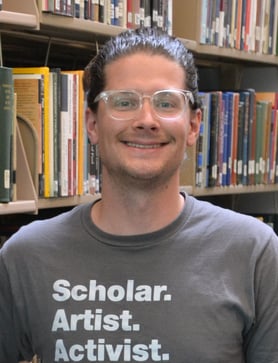 On his podcast website, A People’s Theology, Rev. Mason Mennenga (’22) describes himself as “an aspiring theologian, podcaster, YouTuber, and the internet’s youth pastor.” Mennenga actually runs two podcasts, posts short-form content on YouTube, and shares some of his past writing. He is also a Colorado-based admissions counselor for United.
On his podcast website, A People’s Theology, Rev. Mason Mennenga (’22) describes himself as “an aspiring theologian, podcaster, YouTuber, and the internet’s youth pastor.” Mennenga actually runs two podcasts, posts short-form content on YouTube, and shares some of his past writing. He is also a Colorado-based admissions counselor for United.
By its very nature, podcasting is a public performance, and Mason uses this public space to explore intersections between scripture and lived experience. As he explains it, “I wanted to have conversations about theology with people who are doing inspiring and liberating work in the world, and I wanted people, regardless of their theological backgrounds, to be able to join the conversations.”
His October 12, 2022 podcast, for example, features Karen González, author of the newly published book Beyond Welcome: Centering Immigrants in Our Christian Response to Immigration. González, who emigrated from Guatemala with her family when she was a child, is a speaker, writer, and immigrant advocate who attended Fuller Theological Seminary and is currently working on her PhD in Christian Ethics.
In the episode, González discusses the way in which her emigration to the U.S. as a child has made her feel as though she does not fully belong in her native Guatemala, or in the U.S. The liminal space she inhabits helps her to write compellingly about the immigrant experience, and she cites texts and stories that show how deeply important the care and succor of immigrants was in the Bible. Yet, she asserts, churches largely ignore this foundational directive for mercy and kindness.
Drawing on works from indigenous theologians, González also argues that the western view of property rights is antithetical to God’s vision for the responsible interdependent relationship that should exist between nature and humans. “It is biblical,” she says, “to view the land as not belonging to us.”
In another podcast, Mason discusses ways to further social justice with Jamie McGhee and Adam Hollowell, authors of You Mean It or You Don’t: James Baldwin’s Radical Challenge. Episodes also cover topics including homelessness, the role of protest in advancing justice, disability justice, racial justice and more.
A wide range of theologians have appeared on the podcast, including Dr. Diana Butler Bass, Dr. Monica Coleman, Rev. Dr. Wil Gafney, Rev. Dr. Yolanda Pierce, and Dr. Robyn Henderson-Espinoza. Over time, A People’s Theology has risen to rank among the top one percent of all podcasts.
So You Want to Be a Public Theologian?
The need for informed discourse in the current morass of division and injustice, as in past eras, will not let leaders be still—leaders like you.
United welcomes you to this fascinating and ever growing field of study.
To learn more, consider a degree program or get in touch with Dr. Wheeler.
______
1. Virgil Glenn, 19, right, carrying a pro-segregation sign, shouts angrily at Wilson Yates, a 23-year-old Vanderbilt University divinity student bearing an anti-segregation poster as both pro and anti-segregation pickets marched up and down the Memorial Square in downtown Nashville April 11, 1960. JACK CORN / THE TENNESSEAN
2. Merrill, Arthur L. United Theological Seminary of the Twin Cities: An Ecumenical Venture (New York: The Edwin Mellen Press, 1993), 189.]



Your Comments :